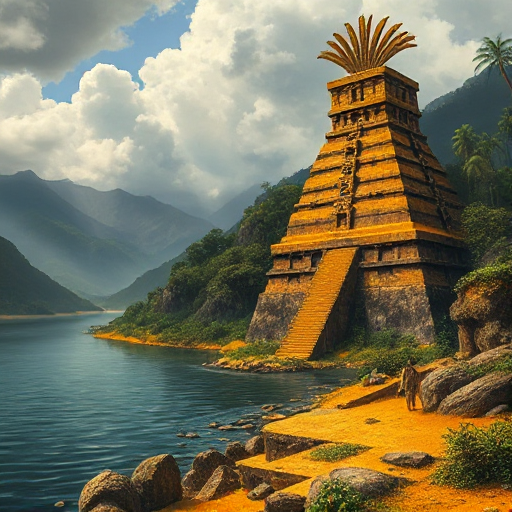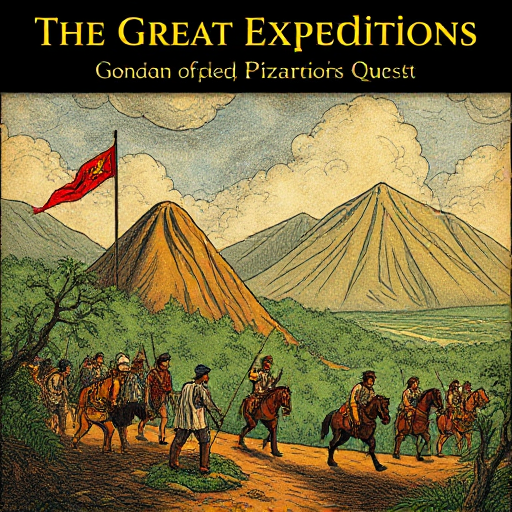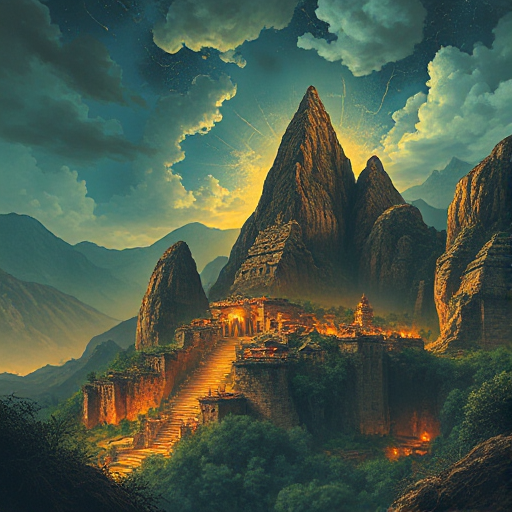For centuries, tales of a fabled city of gold known as El Dorado have captivated explorers, adventurers, and treasure hunters. This legendary city, said to be overflowing with riches, has sparked countless expeditions into the heart of South America. This story delves into the origins of the El Dorado legend, the quests to find it, and the impact it had on exploration and indigenous cultures.
The Origins of the Legend

Indigenous Roots
The legend of El Dorado originated from the indigenous peoples of the Andes, particularly the Muisca tribe in present-day Colombia. They spoke of a ritual involving a chief who would cover himself in gold dust and then plunge into Lake Guatavita as an offering to the gods. This ceremonial act symbolized the connection between the earthly realm and the divine, and it was believed to bring prosperity and favor from the deities.
The Transformation of the Myth
As European explorers began to venture into South America, the story of the golden chief evolved. The initial tale of a single man transformed into a grand narrative of a city teeming with gold. This metamorphosis was fueled by the Europeans’ insatiable desire for wealth and their misunderstanding of indigenous cultures. The idea of El Dorado became synonymous with unimaginable riches, leading to the notion of an entire city made of gold.
Spanish Conquistadors
When Spanish conquistadors arrived in the Americas in the 16th century, they heard tales of El Dorado from indigenous informants. These stories fueled their imaginations and ambitions, leading to expeditions in search of the mythical city. Reports of vast riches heightened the allure of El Dorado, drawing more adventurers into the treacherous jungles and mountains.
The Great Expeditions

Gonzalo Pizarro’s Quest
In 1532, Gonzalo Pizarro, a Spanish conquistador and brother of Francisco Pizarro, led an expedition from Peru into the Amazon rainforest, driven by the promise of gold. His journey was fraught with challenges, including harsh terrain, disease, and conflicts with indigenous tribes. Pizarro’s expedition set out with hundreds of men, horses, and supplies, but as they ventured deeper into the jungle, they faced relentless rain, treacherous rivers, and dwindling resources.
Despite his efforts, Pizarro found no trace of El Dorado, returning empty-handed and disillusioned. Many of his men perished during the journey, and the expedition ultimately exposed the dangers of greed-driven exploration.
Sir Walter Raleigh’s Adventure
In the late 16th century, English explorer Sir Walter Raleigh embarked on a quest to find El Dorado. He explored the Orinoco River in present-day Venezuela, convinced that the legendary city lay hidden within the jungles. Raleigh’s expedition faced numerous hardships, including hostile encounters with indigenous peoples and the harsh environment. He documented his journeys in detail, describing the lush landscapes and the potential wealth he encountered.
Raleigh’s efforts were met with both excitement and skepticism back in England. Despite returning without the treasure he sought, his writings sparked further interest in exploration and colonization. His adventures contributed to the mythos of El Dorado, emphasizing the allure of the unknown.
Other Notable Expeditions
The search for El Dorado inspired numerous other expeditions throughout the 16th and 17th centuries. Explorers like Sebastian Cabot, Francisco de Orellana, and Pedro de Ursúa ventured into uncharted territories, driven by the promise of gold. Each expedition faced its own set of challenges, from treacherous landscapes to conflicts with indigenous tribes. Despite their efforts, none succeeded in finding the mythical city, leading to further speculation and myth-making around El Dorado.
The Impact of the Search

Cultural Consequences
The relentless pursuit of El Dorado had profound effects on indigenous populations. Many tribes were displaced or decimated by European explorers seeking riches. The Spanish conquests led to brutal conflicts and the imposition of foreign rule, resulting in the loss of traditional lands and cultures. The search for El Dorado often justified the exploitation of indigenous resources and labor.
Additionally, the myth of El Dorado contributed to the broader narrative of European colonization, as explorers justified their conquests in the name of wealth and glory. The quest for gold and resources fueled a cycle of violence and greed that would have lasting consequences for the continent.
Environmental Impact
The expeditions in search of El Dorado also had significant environmental repercussions. The relentless quest for gold led to deforestation, habitat destruction, and the depletion of natural resources. Rivers were altered, and ecosystems disrupted, as explorers sought to uncover hidden treasures. The long-term effects of these actions are still felt today, as many regions continue to grapple with the consequences of colonial exploitation.
Modern Interpretations
Today, the legend of El Dorado continues to inspire literature, films, and popular culture. It serves as a symbol of the age-old quest for wealth and the consequences of greed. The story also highlights the clash between cultures, as the search for gold often came at the expense of indigenous lives and traditions.
In modern times, El Dorado has become a metaphor for unattainable dreams and the dangers of obsession. The story is frequently referenced in discussions about colonialism, exploitation, and environmental degradation, reminding us of the complex legacy of exploration.
Conclusion
The legend of El Dorado remains one of the most enduring tales of adventure and exploration. While the city may never have existed as described, its impact on history, culture, and the imagination is undeniable. El Dorado serves as a poignant reminder of the allure of wealth and the often tragic consequences of humanity’s insatiable quest for treasure. The story of El Dorado continues to resonate, inviting new generations to ponder the balance between ambition and ethics in the pursuit of dreams.
The enduring fascination with El Dorado reflects humanity’s timeless desire for discovery and the profound implications of our quests for wealth and power.


